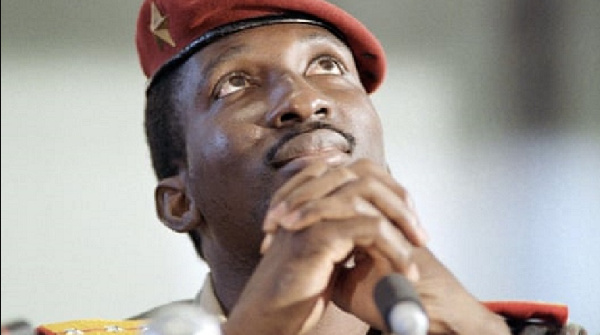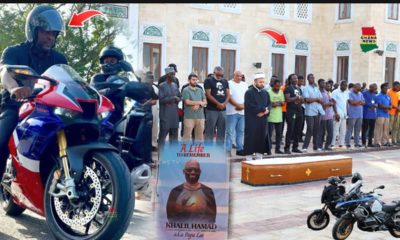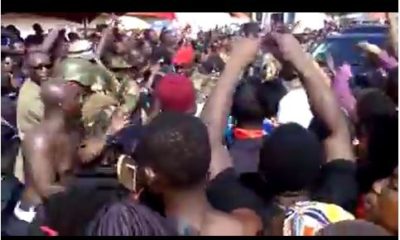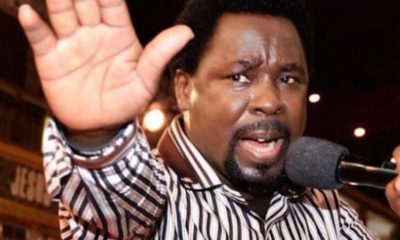News Africa
Why Thomas Sankara’s widow and children boycotted his reburial

Sankara was buried at the location of his 1987 assassination. But the slain army captain’s direct family had said they were not in favor of him being reburied at the “crime scene” as they preferred a place that would “appease hearts.”
Sankara became the president of Burkina Faso in 1983 after participating in a coup that removed Col. Saye Zerbo from the presidency and subduing Maj. Jean-Baptiste Ouedraogo, who was also struggling to take the nation’s top position. While president, Sankara quickly became known as Africa’s Che Guevara. In addition to implementing left-wing and anti-imperialist policies, he was a staunch opponent of corruption.
Sankara’s life was, however, cut short on October 15, 1987, when he was murdered along with 12 soldiers and buried in an unmarked grave by military men. He was only 37 years old. Following his assassination, Sankara’s former friend, Blaise Compaoré, ascended to power in a coup.
Sankara’s new burial site also has a huge statue in his honor. But in a previous statement, Sankara’s family said he should have been reburied at a public garden or the cemetery where his remains were exhumed when the 2015 investigation into his assassination was launched, BBC reported.
“We believed and continue to believe that it is fundamental that a space be found that allows us to gather and appease hearts, and not divide us and increase resentment,” the statement released on behalf of his family said.
But the military government explained it settled on the burial location because of “national interest” and “security imperatives.” The 12 soldiers who were murdered alongside Sankara were also reburied during the funeral.
Compaoré ruled Burkina Faso for 27 years after succeeding Sankara. The 72-year-old was ultimately removed from power in a 2014 popular uprising following his decision to extend his tenure. He fled to Côte d’Ivoire, where he has since been in exile.
Compaoré has also always denied involvement in Sankara’s murder. But in April last year, a military court in Burkina Faso sentenced him to life imprisonment in absentia for the murder of his predecessor.
The West African nation has been struggling to contain incessant Islamist insurgencies that have caused considerable displacement. The general state of insecurity in the country was the driving force behind the January 2022 military coup that ousted Burkina Faso’s civilian government.
Source: face2faceafrica.com
-

 Lifestyle1 month ago
Lifestyle1 month agoRoad Safety Authority narrates how buttocks causes road accident
-

 GENERAL NEWS1 month ago
GENERAL NEWS1 month agoWhy 15 police officers stormed Owusu Bempah’s church – Kumchacha narrates
-

 GENERAL NEWS1 month ago
GENERAL NEWS1 month agoWatch how Ibrahim Mahama rode Honda superbike to pay last respects to late friend
-

 GENERAL NEWS1 month ago
GENERAL NEWS1 month agoHow Offinso residents storm destooled queen mother’s house, demand for new chief
-

 South Africa News1 month ago
South Africa News1 month agoWoman thrown out of a speeding taxi while on her way to work
-

 GENERAL NEWS3 weeks ago
GENERAL NEWS3 weeks agoDeadly clash between youth and navy personnel results in two deaths at Tema Manhean
-

 SHOWBIZ KONKONSAH3 weeks ago
SHOWBIZ KONKONSAH3 weeks agoJunior Pope’s Death: Video of John Dumelo refusing to join canoe for movie shoot over safety concerns resurfaces
-

 News Africa2 months ago
News Africa2 months ago‘Satanically dubious’ – SCOAN releases statement on BBC’s report about TB Joshua, church





